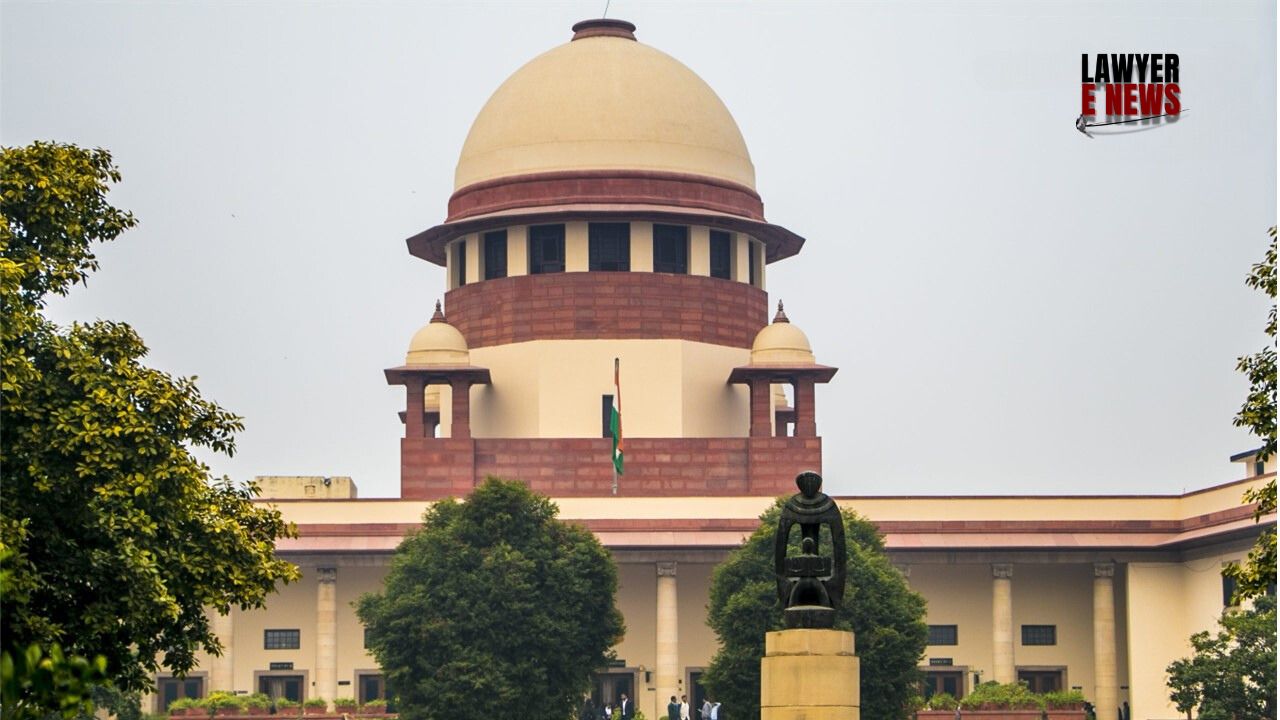-
by Admin
15 February 2026 5:35 AM



Clarifies that judicial mind must be applied when admitting documents in evidence, reinforcing statutory compliance under Stamp Act. The Supreme Court of India, in a significant judgment delivered on July 9, 2024, addressed the legal question of whether courts can recall the admission of an insufficiently stamped instrument marked as evidence. The judgment, rendered by Justices Dipankar Datta and Pankaj Mithal, emphasized the necessity of judicial determination when admitting documents, reinforcing the statutory obligations under the Karnataka Stamp Act, 1957.
The case involved a civil appeal by G.M. Shahul Hameed against Jayanthi R. Hegde, centering on the admissibility of a General Power of Attorney (GPA) insufficiently stamped but admitted into evidence. The trial court initially admitted the GPA without objection due to the absence of the appellant’s senior counsel. Subsequently, the trial court allowed applications to review this decision and required the payment of deficit stamp duty and penalty. The High Court of Karnataka reversed this decision, asserting that once a document is admitted in evidence, its admissibility cannot be questioned. This led to the appeal before the Supreme Court.
The Supreme Court underscored that a document’s admissibility must be decided when it is first tendered as evidence. “The presiding officer of the court retains the authority to impound an instrument even in the absence of objections from any party,” the court noted. It is mandatory for courts to apply judicial mind to determine if a document is sufficiently stamped before admitting it as evidence.
The judgment detailed the interplay between sections 33, 34, and 35 of the Karnataka Stamp Act, 1957. Section 33 mandates the examination and impounding of instruments, while section 34 prohibits the admission of unstamped instruments. Section 35 states that once a document is admitted in evidence, its admissibility cannot be questioned, except under section 58. The court emphasized that these provisions necessitate judicial scrutiny at the time of admission.
Justice Dipankar Datta remarked, “The presiding officer of a court, when confronted with the question of admitting an instrument chargeable with duty but insufficiently stamped, ought to judicially determine it. Application of judicial mind is a sine qua non having regard to the express language of sections 33 and 34.” He further noted, “For section 35 to come into operation, the instrument must have been ‘admitted in evidence’ upon a judicial determination.”
The Supreme Court’s ruling reinforces the judiciary’s duty to ensure compliance with statutory requirements regarding stamp duty. By allowing the trial court to recall the admission of an insufficiently stamped document, the judgment safeguards the fiscal interests of the state and maintains the integrity of the legal system. This decision will have a lasting impact on how courts handle the admissibility of documents, emphasizing the necessity for judicial scrutiny and adherence to legal obligations.
Date of Decision: July 9, 2024
G.M. Shahul Hameed v. Jayanthi R. Hegde
